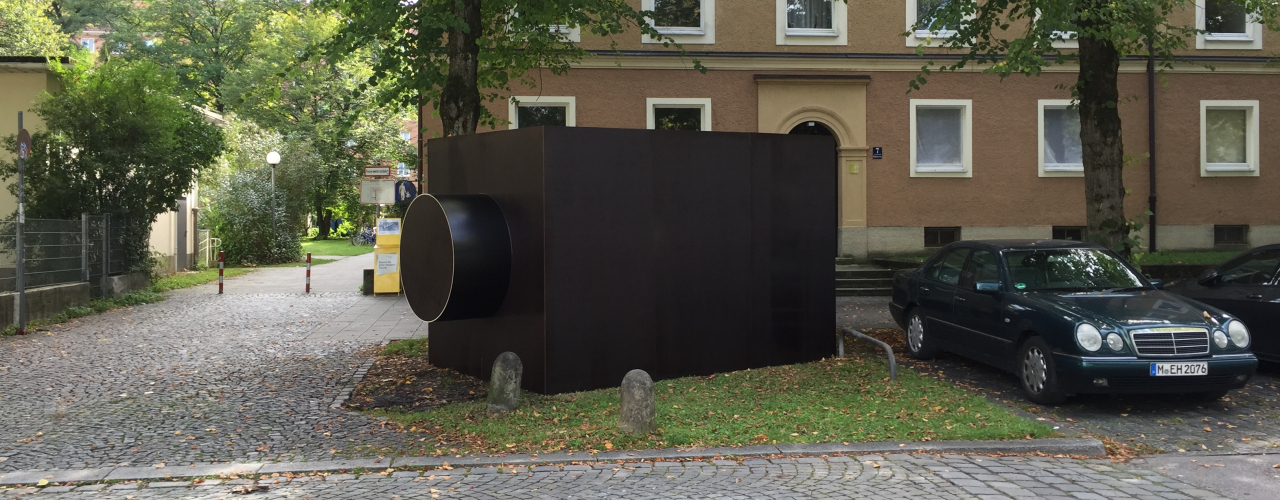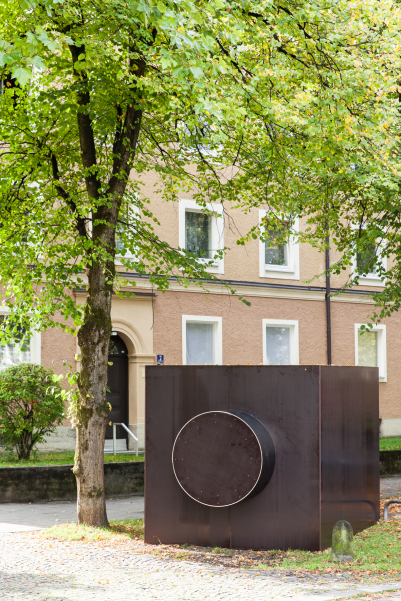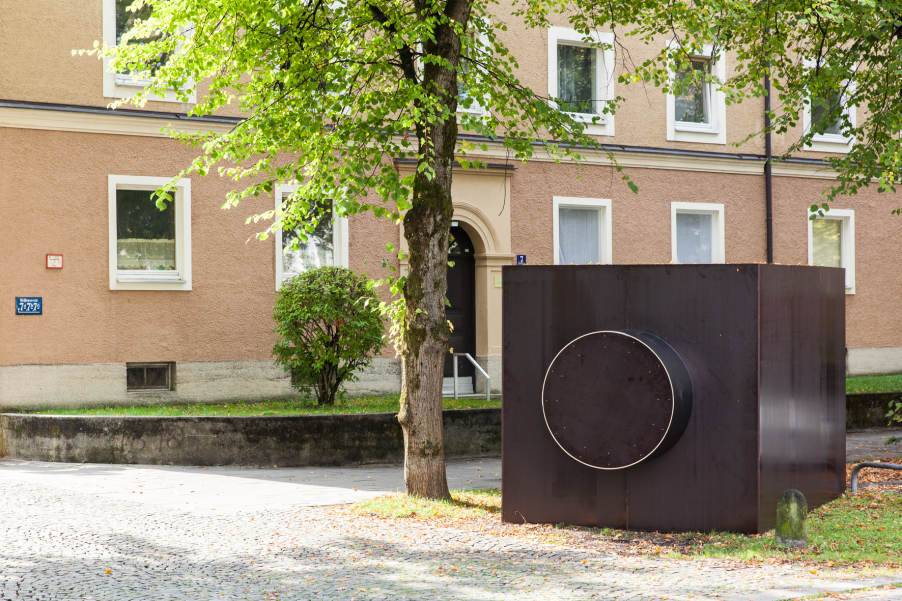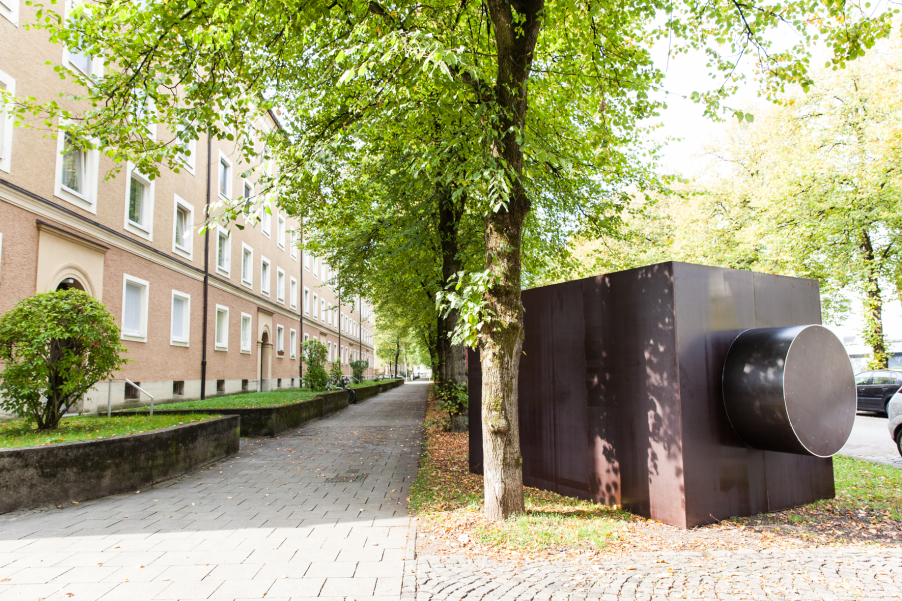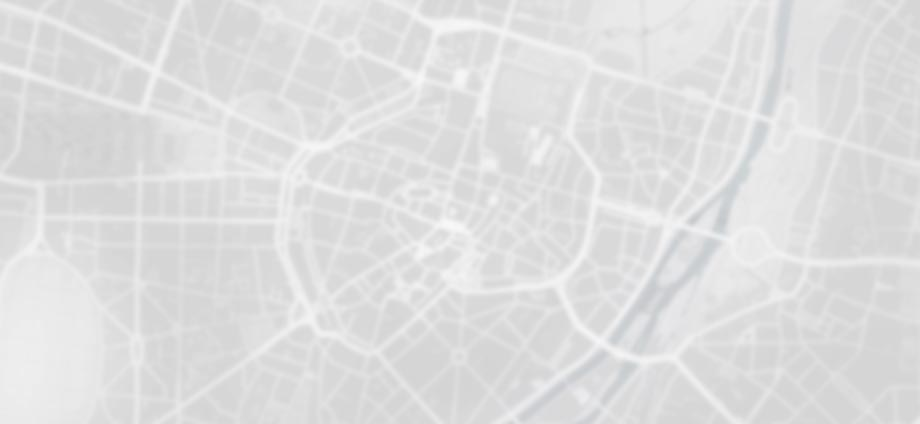The present residential complex at Weißenseestrasse 7-15 served as the former Agfa Kommando satellite camp of Dachau Concentration Camp during its construction phase. From 1944 until shortly before its liberation on 20 April 1945, it housed some 550 women prisoners, most of them political prisoners from the Netherlands and women from Eastern Europe – mainly Polish women who had been deported in retaliation for the Warsaw Uprising. Around 500 of these women worked in the neighbouring Agfa camera factory as forced labourers for the Nazi armaments industry.
Alexander Steig’s art project “KAMERA” uses a sculpture and a series of events to draw attention to the now little-known history of the housing estate and the issue of forced labour at the Munich Agfa camera factory in Giesing. From 24 September to 22 October, a dark, rectangular structure reminiscent of a camera housing can be seen on the green strip at Weißenseestrasse 7. The placement of the installation is based on the former perimeter of the camp. The camp was surrounded by barbed wire fencing and four guardhouses. Agfa, a chemical company based at Tegernseer Landstraße 161 at the time, produced not only roll film but also cameras and film cameras. The title of the project “KAMERA” refers to this.
Agfa contributed financially to the German Initiative for the Compensation of Former Forced Labourers (2000 – 2007).
In addition to his intervention, an accompanying programme takes place in cooperation with the Giesinger Bahnhof cultural centre. A lecture provides information on the topic of forced labour at Afga, the historical background and current perceptions, while a panel discussion focuses on the art of commemoration and remembrance. A reading of the account of Dutch eyewitness Hendrika Jacoba (Kiky) Gerritsen-Heinsius, with an introduction, gives an insight into the daily work and camp life of the forced labourers, and a guided tour takes visitors to the historic sites. In addition, an information box from the City of Munich provides information about the project on site.
Alexander Steig, born in 1968 in Hanover, lives and works in Munich.
